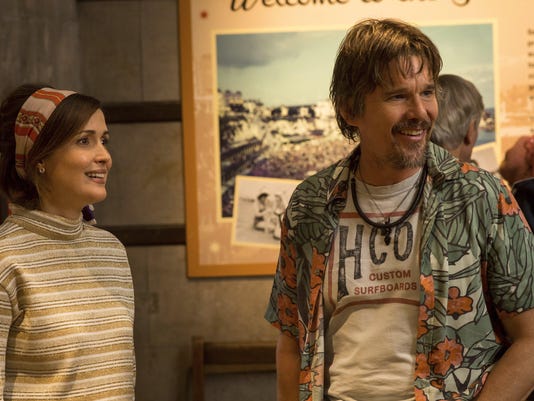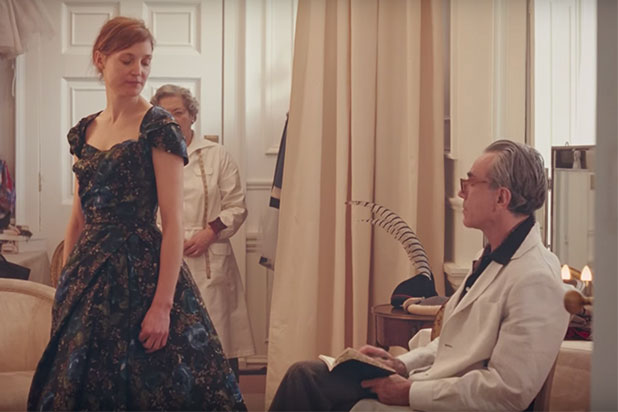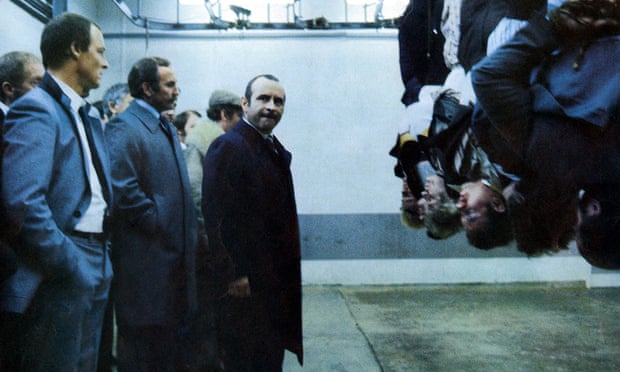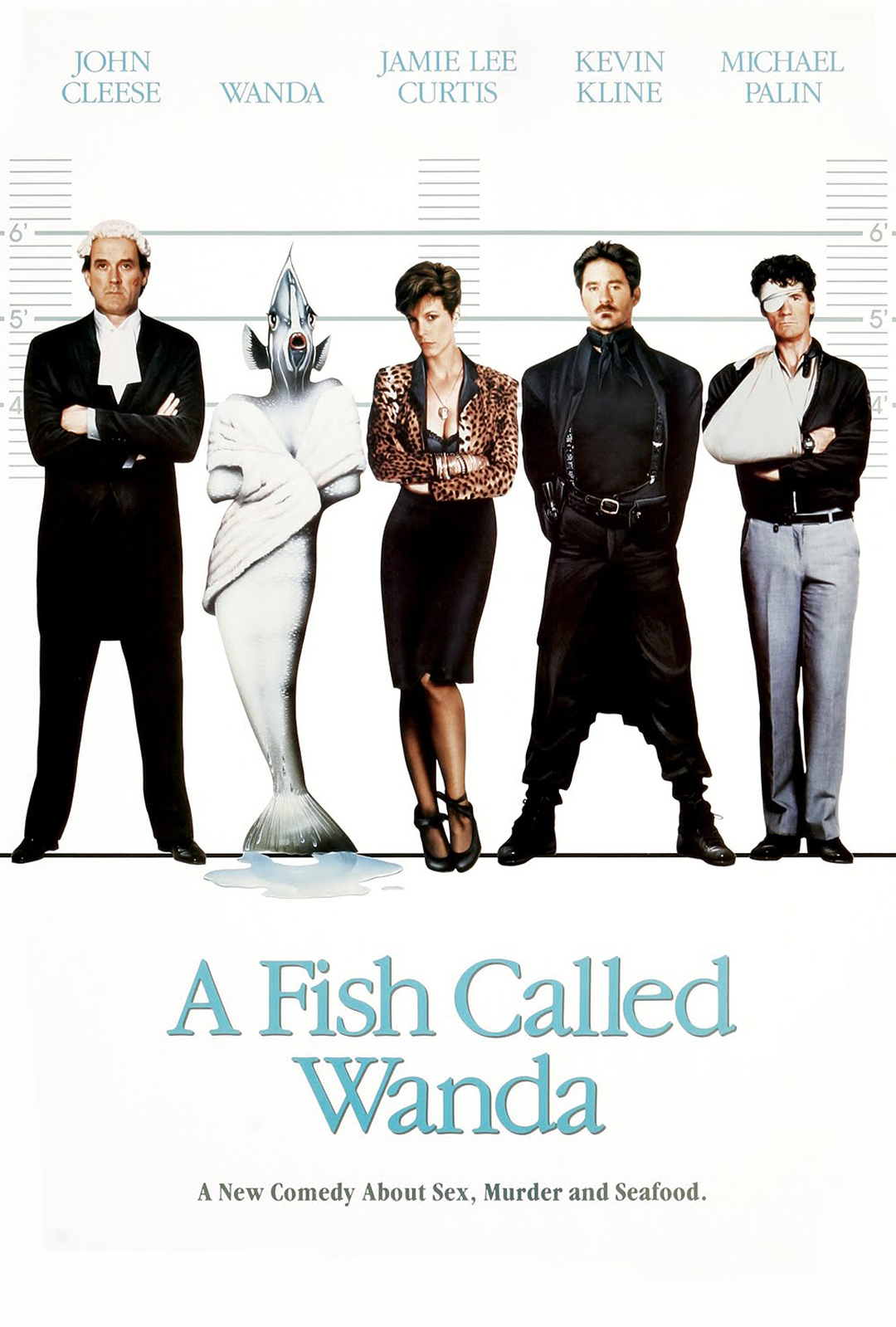No Spoilers! Read Away!!
Director: Jesse Peretz
Another well-done and more unique rom-com based on a novel by British writer Nick Hornby.
Juliet, Naked focuses on Annie Platt (Rose Byrne), a semi-reluctant museum curator in a small town on the coast of England. Annie's longtime boyfriend Duncan (Chris O'Dowd) is an local college professor who has a strong obsession with obscure 1990s rock musician Tucker Crowe. Crowe had one particularly critical hit album 25 years prior but vanished into obscurity for unknown reasons. Duncan is part of a small group of obsessive fans who pore over the minutiae of Tucker's life and rather small body of musical work with almost every spare moment. After a previously-unheard demo copy of Tucker's hit album mysteriously appears, Rose accidentally finds herself in contact with Crowe himself (Ethan Hawke). This forces her to begin rethinking her own life, from her relationship with Duncan to her job and continuing to live in her sleepy hometown.
I'm not a particular fan of romantic comedies, but I can enjoy ones that don't fall into the sappier tropes of the genre. Fortunately, Juliet, Naked avoids nearly all of them. There are certainly a few familiar elements to fans of rom-coms: a woman dissatisfied with her love life. A connection with a new man that forces her to reexamine her own life. Cute and humorously awkward moments. This movie contains all of those. Where it exceeds most of its brethren is in the execution, which is pleasantly organic and genuinely funny most of the time. I truly knew nothing about the plot going into this movie, so I can't speak to how someone might feel if they've read Nick Hornby's novel first, but the movie went in a few directions which I honestly didn't see coming. Though it didn't take any massive risks with the ending, it also avoided many of the tropes and familiar beats popularized by earlier romantic comedies.
A big reason the movie rises above other rom-coms is that it does focus on slightly older people. Crazy Rich Asians, as different as it was in many ways, still focused on a woman in her late-twenties/early thirties and just on the cusp of taking the first big step of getting engaged. Juliet, Naked looks at a woman and peers who are further along in life. Annie is much closer to forty and has been in a relationship so settled that she's barely noticed how stale it's become. The "new man" in her life, Tucker, is not some dashing knight in shining armor but rather a faded musician who clearly has serious problems with relationships, and not just with women. He also has multiple children from multiple mothers, each of whom he has complicated histories with. And for most of the movie, it's not even clear if Annie looks at Tucker as a potential love interest, but perhaps simply as an unexpected sympathetic ear - the stranger to whom she feels comfortable airing her discontent with her life. It all makes for a story that is a bit tougher to predict.
The cast helps things immensely. The three main actors, Byrne, O'Dowd, and Hawke, couldn't have been cast more perfectly. All three - especially Byrne and O'Dowd - have serious comedic chops to go along with their solid acting skills, which the script demands. They feel very much as authentic as such characters can, and the little seaside town is a perfectly quaint setting for such a tale.
My wife and I saw this movie only a few days after this summer's monster rom-com hit Crazy Rich Asians. I certainly enjoyed that movie, but I honestly thought Juliet, Naked to be an overall more touching and consistently strong film. This is likely because its characters are much closer to my own age in my early forties, versus the relative freshness and youth of Crazy Rich Asians. For anyone who likes the genre but wasn't aware of this under-the-radar gem, I highly recommend it.
Director: Jesse Peretz
Another well-done and more unique rom-com based on a novel by British writer Nick Hornby.
Juliet, Naked focuses on Annie Platt (Rose Byrne), a semi-reluctant museum curator in a small town on the coast of England. Annie's longtime boyfriend Duncan (Chris O'Dowd) is an local college professor who has a strong obsession with obscure 1990s rock musician Tucker Crowe. Crowe had one particularly critical hit album 25 years prior but vanished into obscurity for unknown reasons. Duncan is part of a small group of obsessive fans who pore over the minutiae of Tucker's life and rather small body of musical work with almost every spare moment. After a previously-unheard demo copy of Tucker's hit album mysteriously appears, Rose accidentally finds herself in contact with Crowe himself (Ethan Hawke). This forces her to begin rethinking her own life, from her relationship with Duncan to her job and continuing to live in her sleepy hometown.
I'm not a particular fan of romantic comedies, but I can enjoy ones that don't fall into the sappier tropes of the genre. Fortunately, Juliet, Naked avoids nearly all of them. There are certainly a few familiar elements to fans of rom-coms: a woman dissatisfied with her love life. A connection with a new man that forces her to reexamine her own life. Cute and humorously awkward moments. This movie contains all of those. Where it exceeds most of its brethren is in the execution, which is pleasantly organic and genuinely funny most of the time. I truly knew nothing about the plot going into this movie, so I can't speak to how someone might feel if they've read Nick Hornby's novel first, but the movie went in a few directions which I honestly didn't see coming. Though it didn't take any massive risks with the ending, it also avoided many of the tropes and familiar beats popularized by earlier romantic comedies.
A big reason the movie rises above other rom-coms is that it does focus on slightly older people. Crazy Rich Asians, as different as it was in many ways, still focused on a woman in her late-twenties/early thirties and just on the cusp of taking the first big step of getting engaged. Juliet, Naked looks at a woman and peers who are further along in life. Annie is much closer to forty and has been in a relationship so settled that she's barely noticed how stale it's become. The "new man" in her life, Tucker, is not some dashing knight in shining armor but rather a faded musician who clearly has serious problems with relationships, and not just with women. He also has multiple children from multiple mothers, each of whom he has complicated histories with. And for most of the movie, it's not even clear if Annie looks at Tucker as a potential love interest, but perhaps simply as an unexpected sympathetic ear - the stranger to whom she feels comfortable airing her discontent with her life. It all makes for a story that is a bit tougher to predict.
The cast helps things immensely. The three main actors, Byrne, O'Dowd, and Hawke, couldn't have been cast more perfectly. All three - especially Byrne and O'Dowd - have serious comedic chops to go along with their solid acting skills, which the script demands. They feel very much as authentic as such characters can, and the little seaside town is a perfectly quaint setting for such a tale.
My wife and I saw this movie only a few days after this summer's monster rom-com hit Crazy Rich Asians. I certainly enjoyed that movie, but I honestly thought Juliet, Naked to be an overall more touching and consistently strong film. This is likely because its characters are much closer to my own age in my early forties, versus the relative freshness and youth of Crazy Rich Asians. For anyone who likes the genre but wasn't aware of this under-the-radar gem, I highly recommend it.










